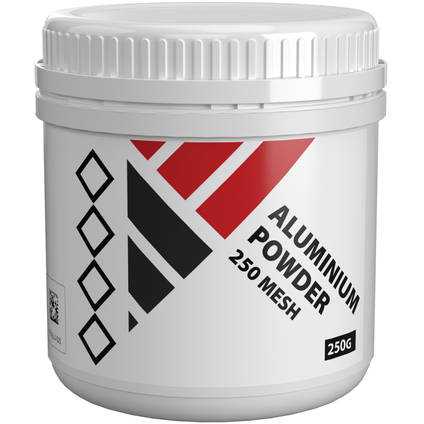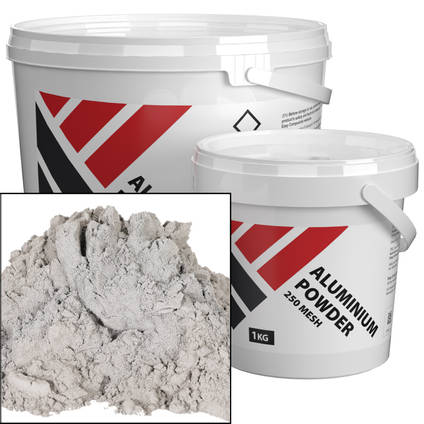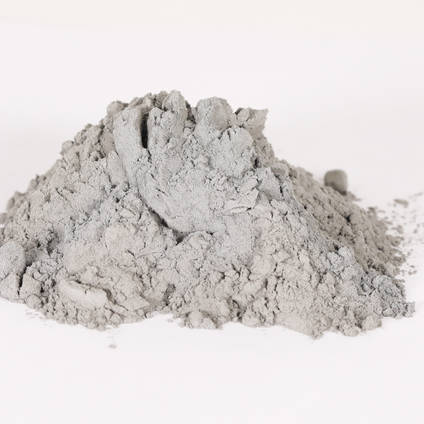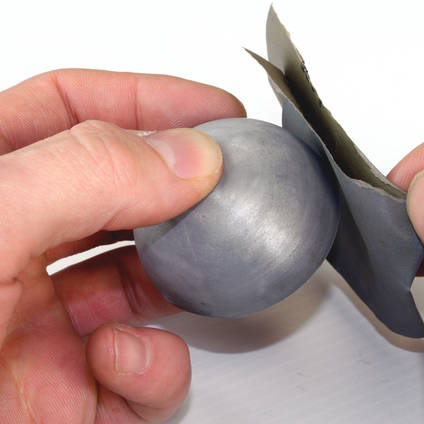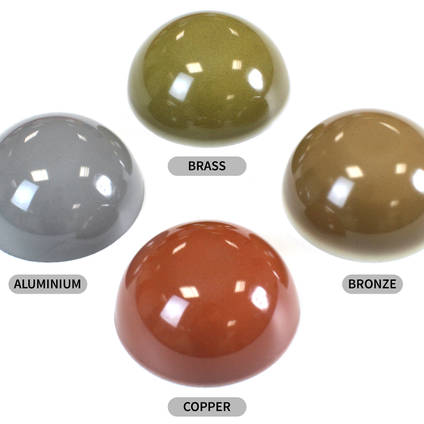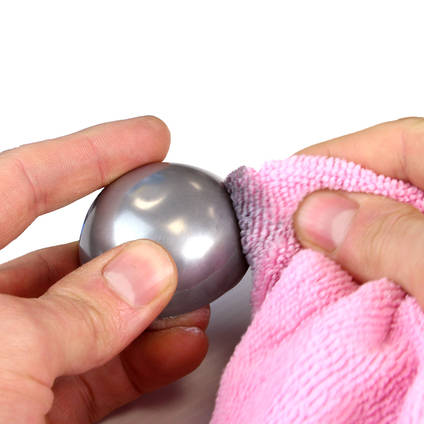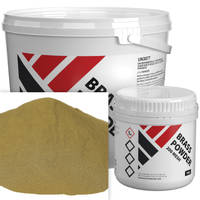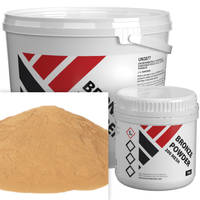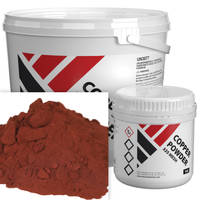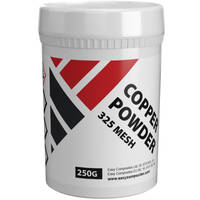Need any help or advice?+44 (0)1782 454499
Specification
Product Data
| Colour | Silver | |
|---|---|---|
| Format | Powder |
Compatible With
| Compatible With | Epoxy | Yes |
|---|---|---|
| Compatible With | Polyurethane | Yes |
| Compatible With | Polyester | Yes |
| Compatible With | Vinylester | Yes |
Weight and Dimensions
| Purity | 99.97 | % |
|---|---|---|
| Particle Size | 250 | Mesh |
General Properties
| Gross Weight | 0.312 | kg |
|---|
Shipping Information
Restrictions
This product is not classed as dangerous goods for transport and can be shipped to all destinations without restriction.
Package Size
There are no package size restrictions or surcharges for this product.
Delivery Cost
To find the delivery cost of this item to your address, add it to your basket and then use the instant shipping calculator on the basket page.
Aluminium Metal Powder
- FP-ALU-025
- No reviews
Highly pure, very fine 250 mesh aluminium metal powder suitable for a range of applications including resin-casting (cold casting), decorative coatings and powder metallurgy. Aluminium powder can also be added to resins and gelcoats to alter their thermal properties.
Our aluminium powder is available to buy online in 250g, 1kg and 5kg packs.
PRODUCT VERSIONS
Pack Size
AVAILABILITY:3 in stock available for immediate shipping
We won’t be beaten on price!
If you believe you’re buying an equivalent product cheaper elsewhere, contact us to discuss your requirements.
Very fine (250 mesh), highly pure aluminium metal powder suitable for a range of applications including resin-casting or modifying the properties of resins or gelcoats.
How to Buy
Aluminium powder is sold in 250g, 1kg and 5kg pack sizes. Please choose the pack size you require from the drop-down list at the top of the page.
25kg packs are available on request; please contact us for pricing.
Further Information
How to Use
A ratio of at least 50% aluminium powder (by weight) would be required to result in a significantly metallic appearance. Higher ratios, up to the limit of pourability, will yield a more impressive metallic appearance and feel.
After casting, the metallic appearance will not be clear or vivid because the metal particles will be obscured behind a thin layer of resin. To reveal the metallic appearance, the casting can be rubbed with an abrasive pad or wire-wool.
When adding metallic powders to polyester or vinylester resin systems it is important to catalyse the resin prior to adding the metal powder so as to avoid any adverse reaction (rapid oxidisation) of the metal powder by the catalyst.
Such oxidisation or other adverse reactions are unlikely to occur with polyurethane or epoxy resins but it may still be a good idea to mix the resin and hardeners together before adding the metal powder.
Use In Cold-Casting / Resin Casting
Add aluminium powder to castings resins such as polyurethane Fast-Cast resins, polyesters or epoxies for an authentic metallic aluminium appearance and feel.
Added to the whole of the resin mix, aluminium powder will increase the density of a casting (making it feel heavier) as well as its thermal conductivity (making it feel colder). Alternatively, it can be added in higher ratios to only a thin surface layer by slush-casting or rotational-moulding, giving a very metallic surface to a casting that can then be back-filled with unfilled resin.
To Add Temperature Stability
Aluminium powder is very frequently added to resins and gelcoats in order to improve their dimensional stability, particularly for use at elevated temperatures.
Epoxy tooling gelcoats, laminating pastes and casting resins can all be filled with aluminium powder to improve their dimensional stability at high temperature.
Very fine (250 mesh), highly pure aluminium metal powder suitable for a range of applications including resin-casting or modifying the properties of resins or gelcoats.
How to Buy
Aluminium powder is sold in 250g, 1kg and 5kg pack sizes. Please choose the pack size you require from the drop-down list at the top of the page.
25kg packs are available on request; please contact us for pricing.
Further Information
How to Use
A ratio of at least 50% aluminium powder (by weight) would be required to result in a significantly metallic appearance. Higher ratios, up to the limit of pourability, will yield a more impressive metallic appearance and feel.
After casting, the metallic appearance will not be clear or vivid because the metal particles will be obscured behind a thin layer of resin. To reveal the metallic appearance, the casting can be rubbed with an abrasive pad or wire-wool.
When adding metallic powders to polyester or vinylester resin systems it is important to catalyse the resin prior to adding the metal powder so as to avoid any adverse reaction (rapid oxidisation) of the metal powder by the catalyst.
Such oxidisation or other adverse reactions are unlikely to occur with polyurethane or epoxy resins but it may still be a good idea to mix the resin and hardeners together before adding the metal powder.
Use In Cold-Casting / Resin Casting
Add aluminium powder to castings resins such as polyurethane Fast-Cast resins, polyesters or epoxies for an authentic metallic aluminium appearance and feel.
Added to the whole of the resin mix, aluminium powder will increase the density of a casting (making it feel heavier) as well as its thermal conductivity (making it feel colder). Alternatively, it can be added in higher ratios to only a thin surface layer by slush-casting or rotational-moulding, giving a very metallic surface to a casting that can then be back-filled with unfilled resin.
To Add Temperature Stability
Aluminium powder is very frequently added to resins and gelcoats in order to improve their dimensional stability, particularly for use at elevated temperatures.
Epoxy tooling gelcoats, laminating pastes and casting resins can all be filled with aluminium powder to improve their dimensional stability at high temperature.
Specification
Product Data
| Colour | Silver | |
|---|---|---|
| Format | Powder |
Compatible With
| Compatible With | Epoxy | Yes |
|---|---|---|
| Compatible With | Polyurethane | Yes |
| Compatible With | Polyester | Yes |
| Compatible With | Vinylester | Yes |
Weight and Dimensions
| Purity | 99.97 | % |
|---|---|---|
| Particle Size | 250 | Mesh |
General Properties
| Gross Weight | 0.312 | kg |
|---|
Metal powders, contrary to expectations are poor conductors. Firstly, in a metal powder a significant proportion of the material is air. You have a lot of particles which you would expect to be touching each other, which they are, but the point of contact is possibly only a fraction of the surface of each particle (whether it’s spherical or irregular) so you have lots of contact points, but they are quite small, and what you actually have is a lot of gaps, so you have only a fraction of the metallic “continuity” (I couldn’t think of a better word) through the sample that you would expect. Secondly with all metal powders there is a tiny layer of oxide on the surface of each particle, as you would have on the surface of a solid metal, this will give a small amount of resistance on say a solid piece of metal, but multiply that by the thousands/millions of particles in the sample and this resistance becomes significant, building to the point where the metal apparently doesn’t conduct. In reality it does, but not much. There is usually enough conductivity for, say, antistatic properties, but that’s about it. I would think that in a resin, you probably lower the conductivity even more as you will start blocking some of the already tiny contact points. There are metal powders produced for conductivity applications, such as silver coated coppers or even silver or gold may be used (higher conductivity and less oxidation), but as you can imagine they become very expensive.
These metal powders are more meant for cold casting to get a solid metallic effect in a resin. They will not bring out a metallic flake or pearl type effect that you would typically see in paints and some casting resins. For that kind of effect you need specialist metallic flakes and pearlescent powders. PearlEx and other brands offer a range of metallic powders to create the kind of effect you are looking for.
Being a pure powder, it is atomized not flaked.
Yes, it would be possible to spray a resin that has metal powder mixed into it however this doesn't necessarily mean that the end result would be exactly what you have in mind. For example, epoxy resins generally don't spray particularly well and when they are sprayed it can often aerate them in an unwelcome way, especially higher viscosity varieties.
In terms of equipment, if you're spraying resin (assuming we're talking about a relatively high viscosity resin such as epoxy) then you would a gun with a large nozzle like a gelcoat spray gun, this would also help to handle the metal powder particles. Gelcoat spray guns like the one linked to can actually be used to spray particles up to the size of sand (for small scale sandblasting) so would certainly be the best bet.
One final thing to consider would be the health-and-safety side of spraying resins. Epoxies in particular would be a real concern when spraying them because they become atomised in a way that they never otherwise would if they were used normally so please be very cautious in this regard and read all appropriate safety information.
...I'd like to use this mix as a means to protect electronics from the elements and as a uniform connecting layer between heat sink and components.
Yes, and no. Adding metal powder to a resin does increase the thermal conductivity and specific heat capacity of the material but the increase in conductivity is less than you might expect because of the way the resin matrix (which is a relatively poor conductor of heat) surrounds each metal particle, to some extent insulating the metal particles from each other. Nonetheless, aluminium powder will increase the conductivity and thermal stability of any gelcoat or resin system it's added to.
ASK YOUR OWN QUESTION
Customer Product Reviews for Aluminium Metal Powder
SUBMIT YOUR OWN PRODUCT REVIEW
We publish all reviews for verified purchases. Submit your own review and help other customers with their choices.SUBMIT YOUR OWN PRODUCT REVIEW
We publish all reviews for verified purchases. Submit your own review and help other customers with their choices.Shipping Information
Restrictions
This product is not classed as dangerous goods for transport and can be shipped to all destinations without restriction.
Package Size
There are no package size restrictions or surcharges for this product.
Delivery Cost
To find the delivery cost of this item to your address, add it to your basket and then use the instant shipping calculator on the basket page.
RELATED PRODUCTS
CUSTOMERS ALSO PURCHASED
RELATED PRODUCTS
CUSTOMERS ALSO PURCHASED
100% SECURE
PAYMENT METHODS
Easy Composites EU B.V., registered in the Netherlands 73601195. All content copyright (C) Easy Composites Ltd, 2025. All rights reserved.
